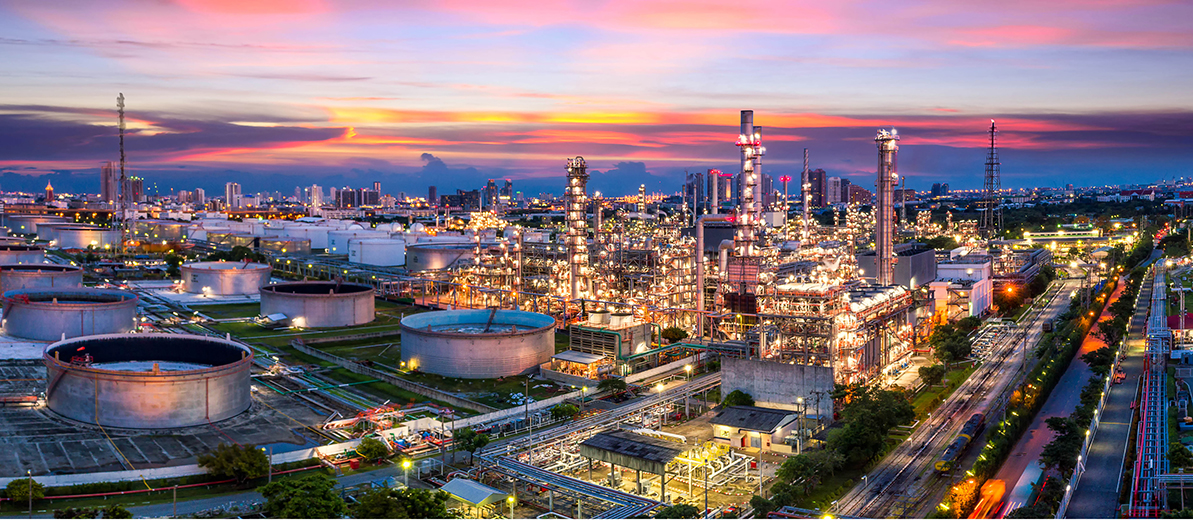
September 15, 2025
Benefits of Engaging a Chemical Engineer as an Expert Witness: Part 1
Chemical engineers are well suited to serve as expert witnesses in claims and disputes involving the design, construction, pre-commissioning, commissioning, start-up, operation, maintenance, and/or performance of industrial processing/manufacturing plants. This is the first of two blog posts on the benefits of engaging a chemical engineer as an expert witness. This post discusses the typical chemical engineer’s education/training and expertise and the role of a chemical engineer as an expert witness. The second post will describe several scenarios that illustrate the types of disputes where engaging a chemical engineer as an expert witness can significantly benefit the outcome of a case.
Chemical Engineers: Training and Expertise
Chemical engineers are formally educated in the fundamentals of several engineering topics including, but not limited to, thermodynamics, fluid dynamics, mass transfer, heat transfer, chemistry, and reaction kinetics. Because of this broad skillset, chemical engineering is sometimes referred to as the Swiss Army knife of engineering disciplines.
Chemical engineers are also formally educated in the functionality and design of various industrial unit operations,1 the integration of unit operations into industrial processing/manufacturing plants, and the monitoring and automatic control of plant operations. Because of this training, process engineers frequently have chemical engineering backgrounds and education.
Their education, training, and experience allow chemical engineers to understand complex industrial processes. Chemical engineers also understand the impacts that the complex interactions of a multitude of design and/or operating variables may have on the integrated design, operation, troubleshooting, and performance of an industrial plant.
The roles and responsibilities of chemical engineers typically include, but are not limited to, the following:
- Design of process flows, including safety/hazards analysis, and development of Process Flow Diagrams (PFDs), including the scale-up of processes from the R&D stage
- Performance of mass and energy balances to determine and specify the temperature, pressure, and chemical compositions of the flow streams that comprise a processing plant
- Design and specification of processing equipment (unit operations), including chemical reactors, and associated instrumentation
- Design and specification of flow systems including pumps, piping, control elements (valves), and instrumentation
- Specification of materials of construction
- Design of process control systems, including safety/hazards analysis, and the development of Piping and Instrumentation Diagrams (P&IDs)
- Determination of equipment layouts, including considerations for minimizing capital costs, minimizing operating costs, and providing sufficient access for maintenance activities
- Precommissioning and commissioning of systems prior to start-up of the integrated unit operations to clean and flush pipes, pressure test, and leak test mechanical systems and equipment, and then check the systems and/or sub-systems and individual units to ensure that the components of any given system and/or sub-system operate and perform as designed
- Plant start-up and performance testing, including development of test plans, analysis of test data, and troubleshooting poor performance and/or reliability results
- Process optimization, including product improvement, yield improvement, reliability improvement, minimization of feedstock consumption, and minimization of utility consumption
- Sustaining plant operations and troubleshooting off-nominal performance
- Economic analysis, including the impact of off-spec products/yield or increased resources (feedstock consumption, utility consumption, operations labor, maintenance labor, etc.) on plant operating costs and revenue
Chemical engineers work in a variety of sectors including the oil and gas, petrochemical, chemical, environmental, biotechnical, and pharmaceutical industries. Chemical engineers also work in other manufacturing environments such as the semiconductor fabrication industry. Based on their industry experience, chemical engineers may have expertise in continuous processing systems (used in most plants), batch processing systems (used in discrete manufacturing operations), or both. Because most processing/manufacturing plants comprise standard unit operations (building blocks), a chemical engineer’s skills are highly transferable, and a chemical engineer may be able to provide insight and expertise regarding a process of interest even without prior experience in that specific industry.
The Role of a Chemical Engineer as an Expert Witness
Expert witnesses provide informed opinions and testimony relative to the dispute on hand based on their experience and expertise in specific fields. Chemical engineer expert witnesses can analyze complex technical issues and data associated with industrial processes and manufacturing plants, form opinions based on their analyses, and express their findings in layman’s terms that attorneys and triers of fact can understand. Chemical engineer expert witnesses typically conduct thorough technical analyses; prepare unbiased expert reports stating their opinions for use in mediation, arbitration, and litigation; and provide unbiased testimony regarding their findings and opinions.
Engaging a chemical engineer expert witness early in the dispute process offers several advantages, including early technical assessment of the case, participation of the expert witness in strategic planning, facilitation of consultation regarding the preservation and/or gathering of evidence, and cost efficiency. Criteria and qualifications to consider when selecting a chemical engineering expert witness include education, licensure (if applicable), areas of expertise, experience relevant to the technical aspects of the dispute, experience testifying at deposition and at trial/arbitration hearings, oral and written communication skills, credibility, and professional reputation.
Eric J. Klein has a BE and ME in Chemical Engineering from Stevens Institute of Technology and a Ph.D. in Chemical Engineering from the University of Colorado.
1 Unit operations are the building blocks of industrial processing plants. Layman’s descriptions of various unit operations will be the topic of a future Long International blog post.
ADDITIONAL RESOURCES

Blog
Discover industry insights on construction disputes and claims, project management, risk analysis, and more.
MORE

Articles
Articles by our engineering and construction claims experts cover topics ranging from acceleration to why claims occur.
MORE

Publications
We are committed to sharing industry knowledge through publication of our books and presentations.
MORE
RECOMMENDED READS
When to Engage a Professional Electrical Engineer as an Expert Witness
This post delves into the scenarios where the involvement of a professional electrical engineer is crucial.
READ
The Role and Benefit of a Consultant in a Construction Project: Part 1
This is the first blog post in a two-part series on the role and benefit of a construction consultant.
READ
A Tale of Two Claims: Same Contract, Two Fates
The success of a claim often hinges not on what happened in the field, but how it was documented, analyzed, and communicated.
READ

